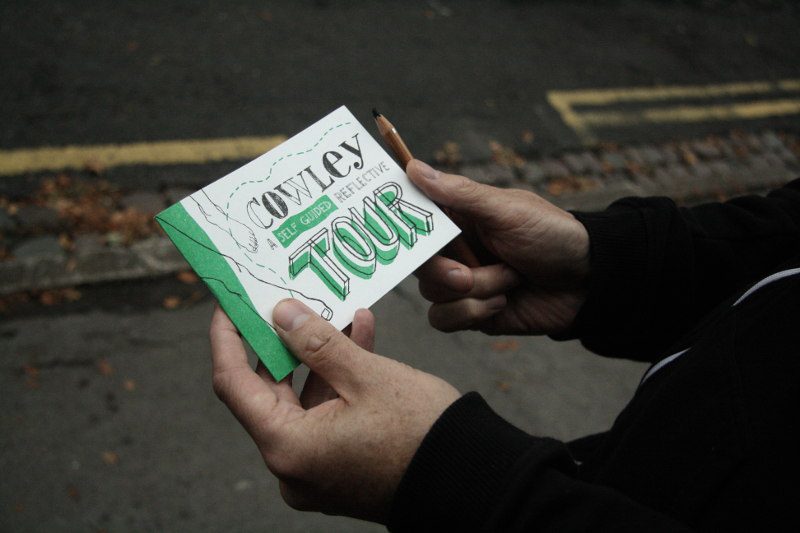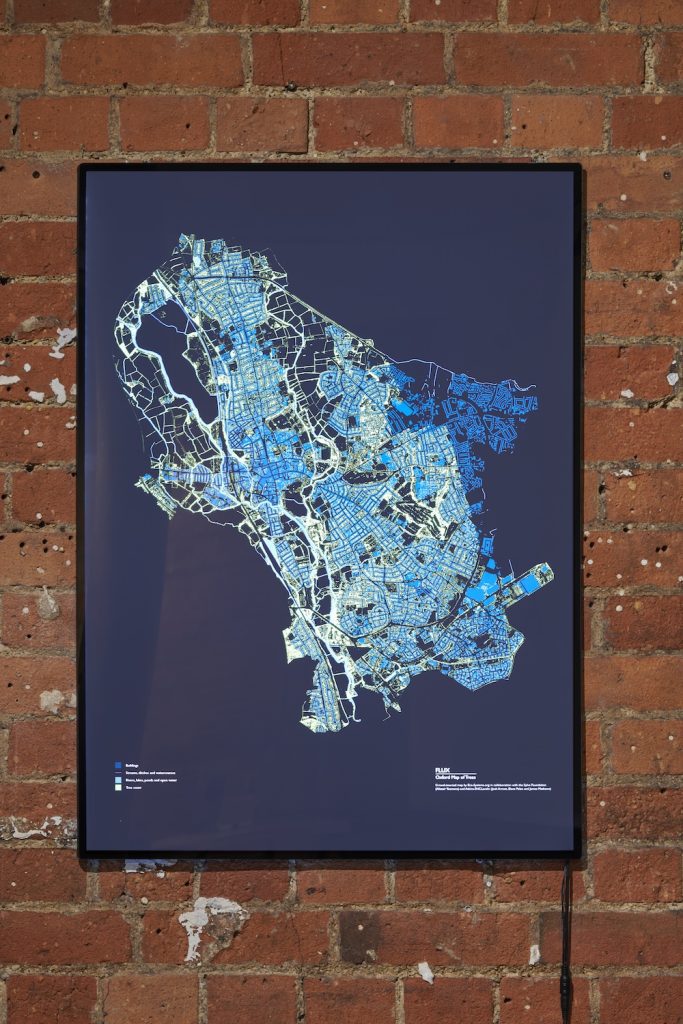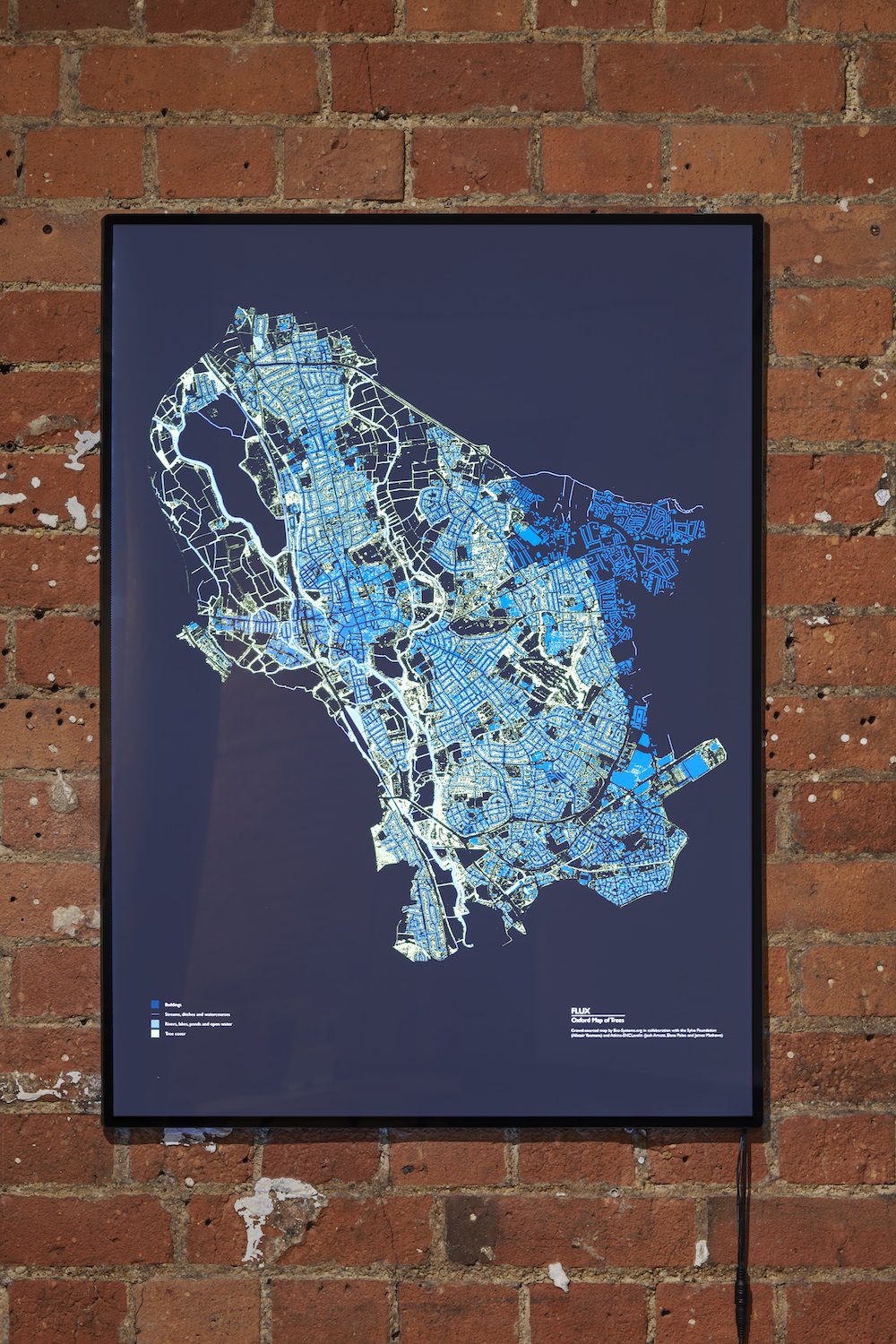How does your street make you feel? – Lucy Jacobs, Adapt Transform co-curator
This is Adapt Transform Stories, a co-created digital series exploring community responses to urban design and creativity. Part of the current Adapt Transform exhibition, in partnership with Oxford Brookes University, this week we’re exploring some of the fascinating Local stories, which feature in the exhibition.

Nor Greenhalgh, Cowley: A Self-Guided Reflective Guided Tour, 2022. Image courtesy the artist.
Visit Adapt Transform to discover Nor Greenhalgh’s Cowley: A Self Guided Tour (2021), a work which invites us to reflect on, and activate our citizenship with Cowley, an area of East Oxford currently experimenting with Low Traffic Neighbourhoods, or LTNs. Taking the form of an illustrated booklet, Cowley: A Self Guided Tour (2021) was inspired, in the artist’s words, by the “intense debate about urban design questions in Oxford, with widespread discussion of how public spaces might be reshaped toward a more liveable, equitable and climate-safe future.” Through the work, audiences are invited to follow a suggested route around the area’s experimental Low Traffic Neighbourhoods, to stop and reflect on the past, present and future of these streets, in an act of deep listening designed to support civic discourse and resolution.

David Gasca, Oxford Map of Trees, 2019. Adapt Transform, installation view at Modern Art Oxford, 2022. Photo by Ben Westoby
Environmental scientist and artist David Gasca presents Oxford Map of Trees (2022), a captivating work that lifts us out of our immediate experience by sharing an inspiring new view from above. Presented on a lit screen, the work uses satellite imagery to prompt a conversation about the vital importance of trees for climate-aware urban design. Gasca explains more about the work, which uses new open-source data to record trees that sit outside traditionally-mapped areas of woodlands in the city of Oxford, such as in parks and gardens. The work represents the important role of data, and data visualisation, in community-centred urban design. Gasca proposes how “citizens can contribute to the climate change challenge by tree planting close to their homes, even at a small scale, redesigning cities from the bottom up.”
From data to discourse, Gasca and Greenhalgh’s creative works which centre on the city of Oxford, explore the importance of new perspectives in the creation of thriving adaptable cities.
Follow Adapt Transform Stories next week, where we’ll focus on environmental stories featured in the exhibition, Adapt Transform.
You can visit the exhibition Adapt Transform across two sites – Modern Art Oxford until 18 September and The Glass Tank Gallery at Oxford Brookes University until 11 September.
Want to get involved in Adapt Transform Stories? How does your street make you feel? Sign up to MAO Studio and leave a comment to join in the conversation.
